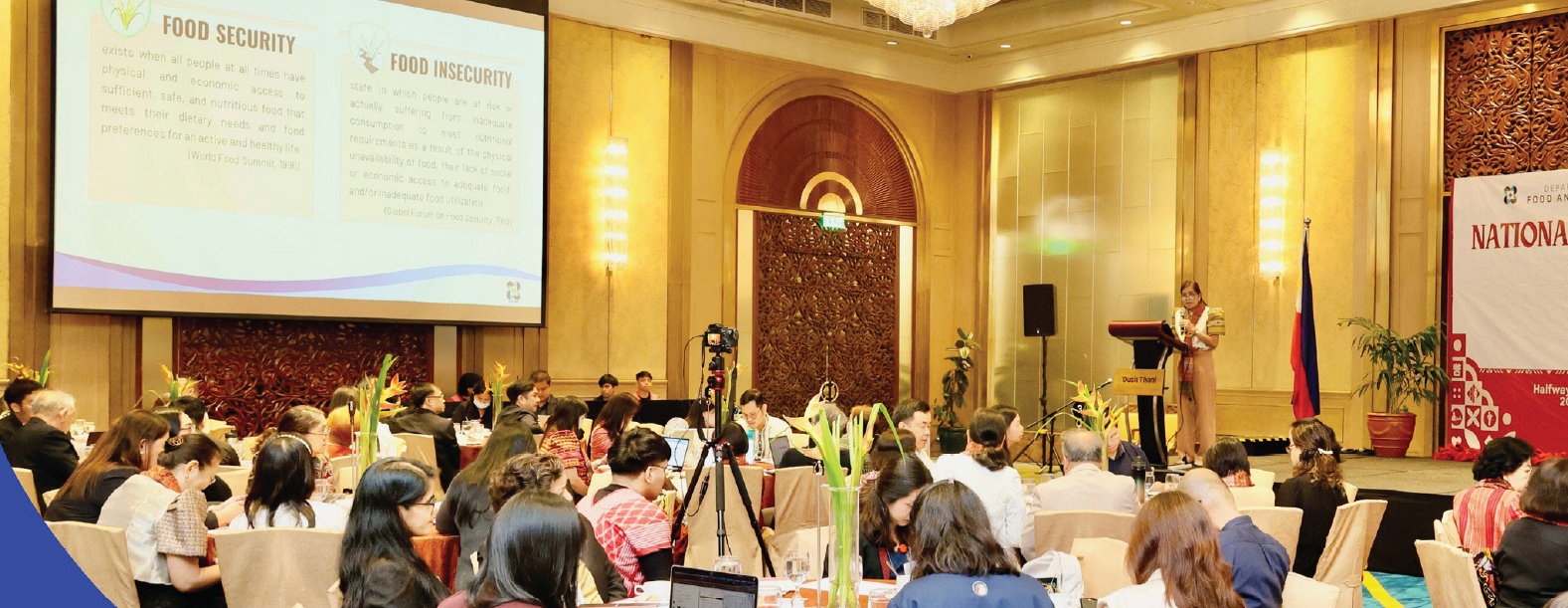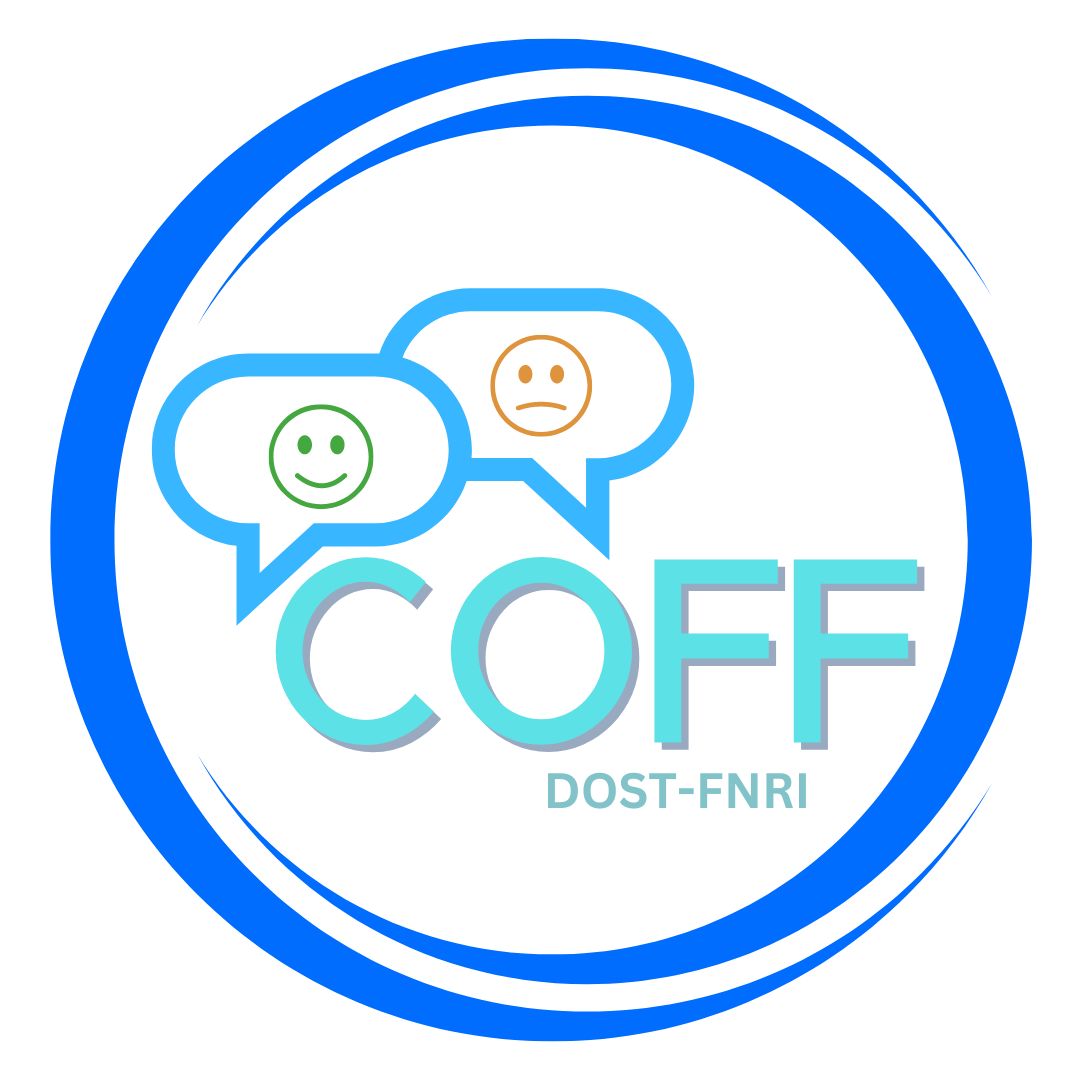 The DOST-FNRI convened policymakers, health professionals, researchers, and advocates at the 2024 National Nutrition Summit, held at the Dusit Thani Manila Hotel on December 10, 2024.
The DOST-FNRI convened policymakers, health professionals, researchers, and advocates at the 2024 National Nutrition Summit, held at the Dusit Thani Manila Hotel on December 10, 2024.
With the theme “Halfway Point to 2030: Key Findings of the 2023 National Nutrition Survey (Part 1)”, the Summit presented critical insights to drive collective action toward achieving the nutrition targets of the United Nations Sustainable Development Goals (SDGs).
The 2023 National Nutrition Survey (NNS) highlights both advancements and persistent challenges in addressing food security, malnutrition, anemia, and risky health behaviors.
Key findings of the 2023 NNS include:
-While there has been a slight improvement in food insecurity, 3 in every 10 households (31.4%) still experience moderate to severe food insecurity, and 3 in 100 (2.7%) households face severe food insecurity. Further, it was noted that severe food insecurity experienced by the households increased as compared to previous years.
- Stunting continues to affect 2 in every 10 (23.6%) children under five years old while wasting remains a concern at 5.6%. Two in every 10 (15.1%) children are underweight.
- Among adults, the prevalence of obesity remains alarmingly high at 4 in every 10 (39.8%), with a significantly higher prevalence among women (45.4%) and urban dwellers (44.5%).
- Among pregnant women, 2 in every 10 (19.1%) are nutritionally at risk of delivering low-birth-weight infants, while 5 in every 10 (51.1%) lactating women are overweight or obese.
- Anemia affects 1 in every 10 (10.9%) women of reproductive age and 2 in every 10 (17.2%) older persons.
The 2023 NNS covered 36,703 households and 115,651 individuals nationwide. The results provide vital data to guide the planning of nutrition programs and policy decisions at national and regional levels.
These findings emphasize the need for sustained and collaborative efforts across all sectors.
DOST Secretary Dr. Renato U. Solidum, Jr.’s Inspirational Message, delivered by Atty. Lucieden G. Raz, DOST-FNRI Deputy Director/Director III and Officer-In-Charge, Office of the Director, underscored the importance of sustained efforts to meet the nutritional needs of Filipinos, urging a unified approach to tackle the ongoing challenges.
“Updated and relevant data on food security, health, and other key nutrition indicators from the National Nutrition Survey are essential for tracking progress and guiding necessary policy adjustments. These data, alongside existing datasets from agencies like the Department of Health (DOH), Philippine Statistics Authority (PSA), Department of Agriculture (DA), Department of Social Welfare and Development (DSWD), and Department of Education (DepEd), provide a strong foundation for evidence-based decision-making. These will guide the setting of new targets and interventions while empowering stakeholders to re-strategize and address the persistent triple burden of malnutrition and the escalating challenge of non-communicable diseases (NCDs)”, Atty. Raz, on behalf of Sec. Solidum, stated.
Meanwhile, Atty. Raz emphasized the need for innovative, science-driven solutions to bridge the country’s nutrition gaps. She highlighted the crucial role of Research and Development (R&D) and the importance of collaboration with industry, academia, government, and international stakeholders in advancing science, technology, and innovation (STI) to address these pressing issues.
The National Economic and Development Authority (NEDA) Secretary, Dr. Arsenio M. Balicasan, gave the Keynote Address during the Summit, which was delivered by Dir. Girlie J. Casimiro-Igtiben, Director IV NEDA’s Social Development Staff.
Sec. Balicasan emphasized the importance of integrating nutrition into the broader socio-economic development agenda.
Moreso, the summit featured a distinguished panel of experts, including Dr. Cecilia Cristina S. Acuin, Adjunct Associate Professor, UP Los Baños, Ms. Cristina Murphy, Head of School Feeding and Nutrition, World Food Programme, Ms. Alice K. Nkoroi, Nutrition Manager, UNICEF, Assistant Secretary Irene B. Dumlao, DSWD, Dr. Maria Corazon Dumlao, Chief, School Health Division, DepEd, Dr. Magdalena C. Meana, Nutrition Officer, Muntinlupa City, and Ms. Ellen Ruth F. Abella, OIC, Nutrition Planning and Policy Division, NNC.
As we approach the halfway to 2030 and assess our progress toward achieving the Sustainable Development Goals (SDGs) for Nutrition, DOST-FNRI urges government agencies, local governments, non-governmental organizations, and private sector stakeholders to intensify collaborative efforts in enhancing the nation’s nutrition landscape.
With the latest NNS results, DOST-FNRI aims to support informed decision-making and foster the development of innovative, sustainable solutions that will elevate the health and nutritional well-being of the Filipino people. Together, we can make significant strides toward a healthier future for all.
For more information about the 2024 National Nutrition Summit and the complete 2023 NNS results, please visit https://enutrition.fnri.dost.gov.ph/.











